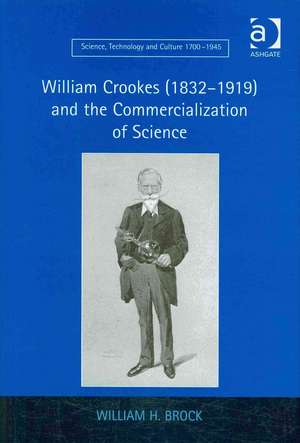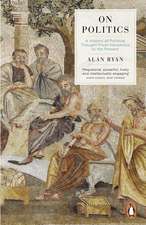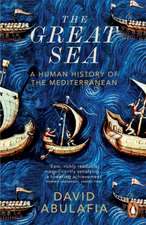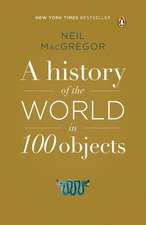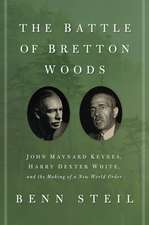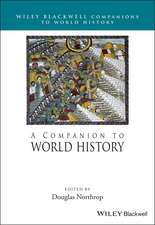William Crookes (1832–1919) and the Commercialization of Science: Science, Technology and Culture, 1700-1945
Autor William H. Brocken Limba Engleză Hardback – 28 mai 2008
| Toate formatele și edițiile | Preț | Express |
|---|---|---|
| Paperback (1) | 469.34 lei 6-8 săpt. | |
| Taylor & Francis – 11 noi 2016 | 469.34 lei 6-8 săpt. | |
| Hardback (1) | 1109.18 lei 6-8 săpt. | |
| Taylor & Francis – 28 mai 2008 | 1109.18 lei 6-8 săpt. |
Din seria Science, Technology and Culture, 1700-1945
-
 Preț: 310.88 lei
Preț: 310.88 lei -
 Preț: 475.16 lei
Preț: 475.16 lei -
 Preț: 469.34 lei
Preț: 469.34 lei - 12%
 Preț: 299.52 lei
Preț: 299.52 lei -
 Preț: 469.34 lei
Preț: 469.34 lei -
 Preț: 469.34 lei
Preț: 469.34 lei -
 Preț: 489.26 lei
Preț: 489.26 lei -
 Preț: 464.12 lei
Preț: 464.12 lei -
 Preț: 489.26 lei
Preț: 489.26 lei - 30%
 Preț: 820.73 lei
Preț: 820.73 lei -
 Preț: 469.34 lei
Preț: 469.34 lei -
 Preț: 469.34 lei
Preț: 469.34 lei -
 Preț: 486.49 lei
Preț: 486.49 lei -
 Preț: 416.22 lei
Preț: 416.22 lei -
 Preț: 469.34 lei
Preț: 469.34 lei -
 Preț: 469.34 lei
Preț: 469.34 lei - 17%
 Preț: 259.98 lei
Preț: 259.98 lei - 17%
 Preț: 259.98 lei
Preț: 259.98 lei - 12%
 Preț: 299.52 lei
Preț: 299.52 lei - 30%
 Preț: 821.13 lei
Preț: 821.13 lei -
 Preț: 489.26 lei
Preț: 489.26 lei - 26%
 Preț: 248.30 lei
Preț: 248.30 lei - 26%
 Preț: 876.78 lei
Preț: 876.78 lei -
 Preț: 384.66 lei
Preț: 384.66 lei - 16%
 Preț: 261.54 lei
Preț: 261.54 lei - 18%
 Preț: 1001.77 lei
Preț: 1001.77 lei
Preț: 1109.18 lei
Preț vechi: 1352.65 lei
-18% Nou
Puncte Express: 1664
Preț estimativ în valută:
212.24€ • 222.39$ • 175.45£
212.24€ • 222.39$ • 175.45£
Carte tipărită la comandă
Livrare economică 12-26 aprilie
Preluare comenzi: 021 569.72.76
Specificații
ISBN-13: 9780754663225
ISBN-10: 0754663221
Pagini: 586
Dimensiuni: 156 x 234 x 32 mm
Greutate: 0.45 kg
Ediția:1
Editura: Taylor & Francis
Colecția Routledge
Seria Science, Technology and Culture, 1700-1945
Locul publicării:Oxford, United Kingdom
ISBN-10: 0754663221
Pagini: 586
Dimensiuni: 156 x 234 x 32 mm
Greutate: 0.45 kg
Ediția:1
Editura: Taylor & Francis
Colecția Routledge
Seria Science, Technology and Culture, 1700-1945
Locul publicării:Oxford, United Kingdom
Cuprins
Contents: Introduction; Preliminary: a chemist at work; A tailor's son; Photographic chemist. The making of an editor; Earning a living; Thallium; Carbolic and cattle plague; Selling science, 1865-75; Spiritualism; Mysterious forces: investigating Mr Home; Chemistry is strictly a science of precision; The investigation of Florence Cook, 1872-74; Scandal: the investigations of Annie Eva Fay and Rosina Showers; The radiometer and its lessons: William Carpenter versus William Crookes; Dark spaces and the 4th state of matter; Ubi crux ibi lux. The business of electricity; The commercialization of public health: water; The commercialization of public health: adulteration, sewage and hygiene; Radiant spectroscopy. The rare earths crusade; Esoteric chemistry in the nineties; Inert gases and transmutations; The wheat problem; Radioactivity; Welsh gold and African diamonds; The grand old man of chemical physics, 1907-1913; The final years, 1913-1919; The afterlife; Appendices; Bibliography; Index.
Notă biografică
William H. Brock, Emeritus Professor of History of Science, University of Leicester, UK
Recenzii
PRIZE: Winner of the 2009 Roy G. Neville Prize in Bibliography or Biography presented by the Chemical Heritage Foundation ’...Brock brings Crookes alive in masterful detail and with literary style in this novel-like yet definitive history...Highly recommended. All libraries.’ Choice ’Brock, using more than 800 published articles by Crookes, as well as his journalism and surviving manuscripts, most important his laboratory notebooks, has written a convincing (I would almost be tempted to say definitive) account of Crookes’s varied life. ... Like all good biographers Brock has cast light onto far more than the subject. ... Crookes emerges as a major figure in 19th- and 20th-century science, and historians will long be grateful to Brock for tracking Crookes’s role in the development of science in virtually all its aspects.’ Chemical Heritage ’To write the biography of such a varied man is a challenge, but Brock has met that challenge in superb fashion... The last biography of Crookes was written by Fournier d'Albe in 1923. Brock's achievement is such that there should be no need to write another for at least 86 more years.’ Bulletin for the History of Chemistry ’Brock's is a readable, well researched, doorstop biography - an exhaustive account of an exhausting life.’ Medical History ’This is a highly-informed and exhaustive work on a scientist across the vast range of Victorian and Edwardian England opportunity who, ultimately, in his long life, garnered many accolades from the most prominent of scientific societies.’ EH.NET ’Si le terme définitif peut être employé en histoire, nul doute que ce livre constitue la biographie définitive de Sir William Crookes. Historiens des sciences, physiciens et chimistes curieux de leur histoire, et historiens intéressés par le rôle de la science et des scientifiques dans la société tireront grand profit de la lecture de cet ouvrage, écrit dans un bel anglais, accessible et clair, vif et a
Descriere
William Crookes' long life was one of unbroken scientific and business activity, culminating in his appointment as President of the Royal Society in 1913. Discoverer of thallium, inventor of the radiometer, investigator of cathode rays, spiritualist, journalist, editor, businessman, celebrity: his extraordinary life and career provide a unique window into the world of Victorian and Edwardian science.
